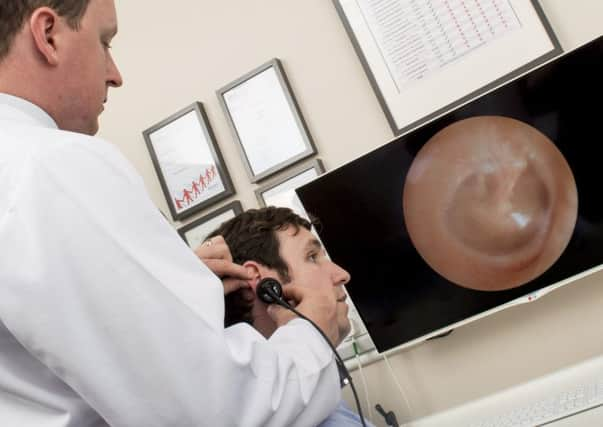Call for better support for tinnitus sufferers


A national survey has revealed more than 90 per cent of sufferers do not feel they are given sufficient health advice and guidance for their symptoms.
This appears to be broadly reflected by a poll at the Tinnitus Clinic, where more than 80 per cent of respondents also reported feeling “disappointed” about their options for treating the condition after consulting their doctor.
Advertisement
Hide AdAdvertisement
Hide AdThe survey by the Harley Street-based clinic, which has a centre in Glasgow, also found 91 per cent of respondents were told their tinnitus would be something they’d have to ‘learn to live with’ or ‘get used to’.
It is estimated more than 49,600 adults in Glasgow have experienced tinnitus at one time or another, which is described as a ‘ringing in the ears’, but it can also be a whizzing, roaring, buzzing, hissing or another type of continuous noise.
It may be high or low-pitched, and the volume may vary over time.
In some fortunate cases, the tinnitus will fade within hours or days, but in others the sound can continue for months or years, affecting sleep patterns, concentration and overall quality of life.
Advertisement
Hide AdAdvertisement
Hide AdNow Christopher Stone, managing director of the Glasgow clinic, is hoping GPs can make a difference.
He said: “Often patients come to us after finding a lack of support and understanding elsewhere.
“What tinnitus sufferers need at their first GP appointment is help and hope – to be offered support and reassurance their doctor will work with them to create a management plan aimed at reducing symptoms.”
The Tinnitus Clinic has published a GP Guide, with input and contributions from doctors and other healthcare professionals, as a resource to help the healthcare industry better understand the condition and what can be done to help those affected.
Advertisement
Hide AdAdvertisement
Hide AdMr Stone added: “The Guide has already been welcomed by a number of doctors as a useful and comprehensive resource in the management of this distressing condition for patients, and we are now encouraging Trusts in Scotland to upload the document to their Pathway Information Portal.”